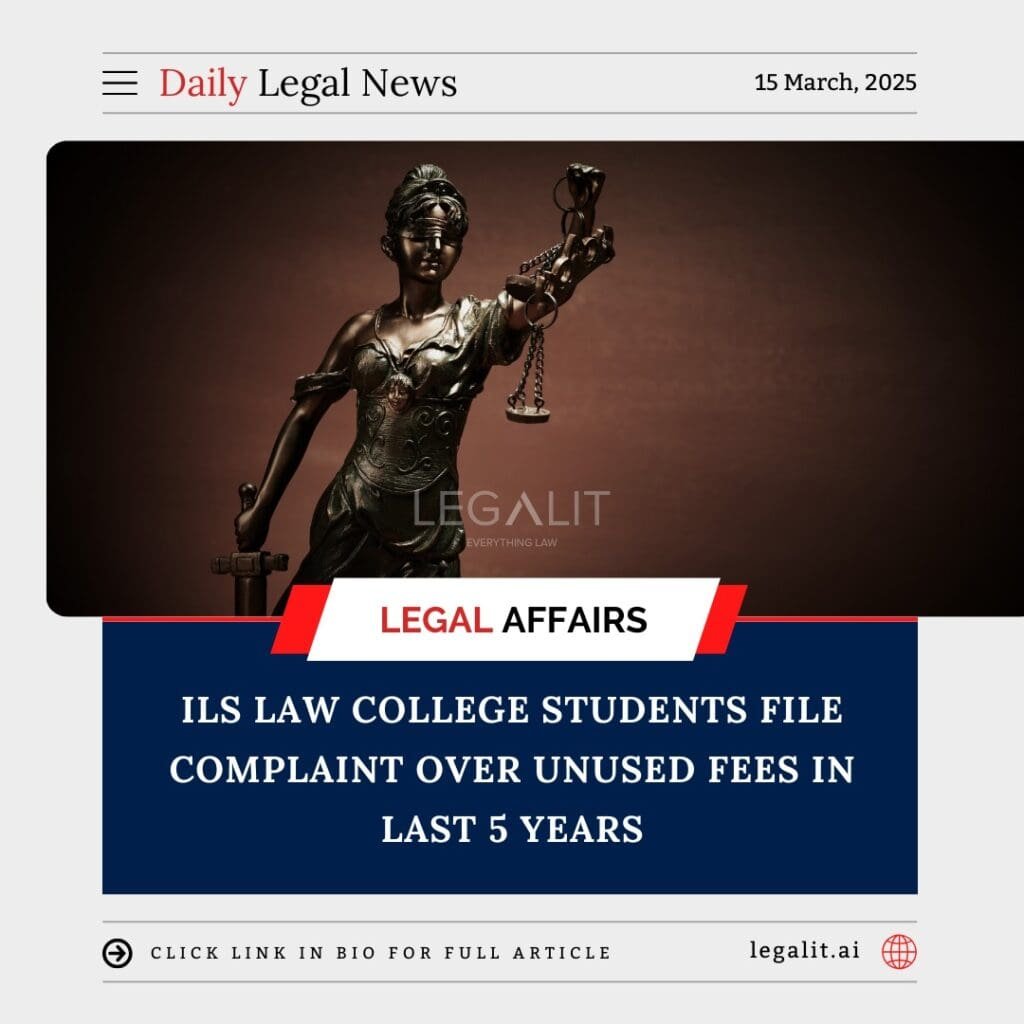
Background
Students of ILS Law College have filed a formal complaint seeking clarification on the utilization of fees collected over the last five years. The complaint alleges that a significant portion of the fees remains unutilized, with no clear explanation from the college administration. The students argue that despite paying various charges, including infrastructure and activity fees, they have not received corresponding benefits or improvements in facilities.
The issue has reportedly been raised multiple times, with students demanding greater transparency regarding the allocation of funds. Dissatisfaction grew after repeated requests for financial disclosures were allegedly ignored by the administration. The complaint has now been submitted to the relevant education authorities, urging intervention and an audit of the college’s financial records.
Students’ Concerns
- Non-utilization of Fees
- Students claim that a substantial portion of fees paid for facilities, extracurricular activities, and infrastructure has not been used for the intended purposes.
- They question why essential campus developments and student welfare programs have seen little to no progress.
- Lack of Transparency
- Despite multiple inquiries, the administration has not provided a detailed breakdown of fee utilization.
- The absence of an official financial report has raised suspicions about possible mismanagement of funds.
- Demand for Refund or Justification
- Students are demanding either a refund of the unutilized fees or a clear explanation of how the money has been allocated.
- They argue that if the collected fees have not been spent on student welfare, the funds should be returned or redirected appropriately.
Legal and Institutional Framework
- University Grants Commission (UGC) Guidelines – Mandate transparency in fee structures and proper utilization of funds collected from students.
- Consumer Protection Act, 2019 – Allows students to file complaints against educational institutions for deficiencies in service.
- State Education Department Oversight – Regulatory bodies can audit and investigate financial mismanagement in educational institutions.
Possible Implications
- For ILS Law College – May face an official audit or inquiry if the complaint gains traction.
- For Students – Could set a precedent for increased financial transparency in private and public law colleges.
- For Higher Education Governance – Highlights the need for stricter regulations on fee collection and utilization.
Conclusion
The complaint filed by ILS Law College students underscores growing concerns about financial transparency in educational institutions. If the issue escalates, it could prompt regulatory bodies to impose stricter accountability measures on colleges regarding fee utilization. The outcome of the complaint will likely determine whether the students receive a refund, an official explanation, or further legal recourse.